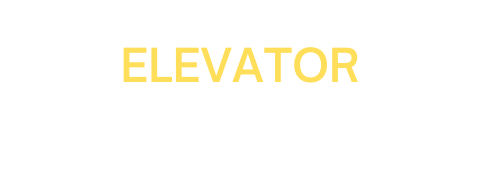While building Elevator Program, I began to reflect on common themes and questions that artists have shared with me over the course of a decade of teaching. One that comes up again and again is focus and creativity.
There are a number of different aspects to focus and how that helps us with the creative process. Firstly, it takes 15 minutes of doing something continuously without disruption to give it your full attention. So if you are writing music and answering messages on a social media platform or even hearing notifications, that disrupts your focus and your workflow.
The first step to creativity is focusing your attention. Put any potential distractions, a phone being an obvious one, in another room or turn it off. Turn off your emails, turn off any social media updates/notifications and allow yourself to have this time to yourself to explore your ideas.
Some of the worlds leading athletes/musicians/performers discuss the concept of entering a 'flow state' when they need to step up and deliver in front of a large audience, regardless of their mood. They can switch off the outside world and perform at a world class level.
Creativity in electronic music is the same. One of the keys to being a successful creative is being able to switch it on when you sit down to do write music or work with other artists. I've been fortunate to get to know many talented artists over the years, I've seen how they can switch on the creative process. They don't wait around for inspiration to strike like a bolt of lightening. They know their craft, they know the tools at their disposal and they can be creative any time they set foot in a studio.
Last year I wrote my debut HYBRASIL album EMBERS for Radio Slave's Rekids imprint. I always imagined writing an album in solitude in a remote location somewhere, that would be nice but that wasn't the case for me. While writing Embers I created the Advanced Music Production Course which was a huge undertaking. I was also working with Radio Slave and SRVD as a Studio Technician.
When I had time to be creative, that is when I had to switch it on. Sometimes I would only have a two hour window to create something. This pushed me to make decisions quickly, to press forward with my ideas and create a body of work that would ultimately become my debut album. This changed how I write music. I got in the habit of writing music quickly and being able to lock into a creative state when I sat down to make music.
This brings me to the next facet of focus, focusing your direction. What is your voice as an artist and where do your visualise your music being played? Do you imagine it in the main room of Berghain, or perhaps being at Dekmantel and hearing your favourite DJ play your song.
The question is where do you want to be? Where do you want to perform? One of the most inspiring things you can do is to visualise and imagine yourself in a space and producing your kick drums, hi hats, synths etc around that.
One of the fundamentals of the Advanced Music Production course is equipping learners with an in-depth knowledge of the technology at their finger tips (Ableton Live) and using that to discover their voice as an artist. The technology is only a medium for your unique voice and sound. We can't be all things to all people, we can only be ourselves.
The third and final facet to focus and creativity is focusing on your instruments. If you think back to the pioneers of Electronic Music from Chicago and Detroit, Juan Atkins, Jeff Mills, Robert Hood, Frankie Knuckles, Derrick May, Marshall Jefferson etc. They focused on a small number of machines to create the music they did. In some cases they might have only had a drum machine, sampler, a synth or two and a small mixing desk to work with. The key is that they learned those machines inside out and created incredible music that changed the world.
Learn the tools you have at your disposal inside out before moving onto the next. The objective of the Artist Development Program is to teach people how to use Ableton Live to its fullest ability. You don't need the latest plugins or the newest DAW, the key is learning the tools at your fingertips, tapping into your creativity and creating music that represents you.
Elevator Program was built to help artists unlock their creativity and get the most out of Ableton Live software. I believe anyone can make music if they are passionate and willing to put in the hours to learn their craft. Every course was designed to help people make music and help them find their unique artistic voice.
